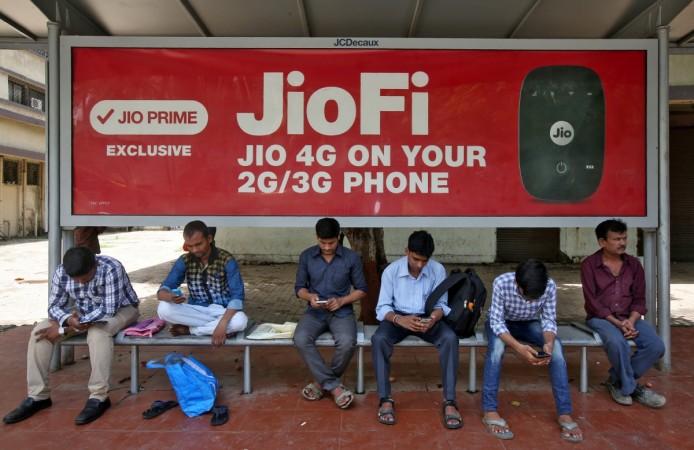
The entry of Mukesh Ambani's Reliance Industries Ltd (RIL) into the e-commerce market place in the country will pose a great challenge to Amazon and Flipkart. Cash-rich RIL is planning to use the online-offline marketplace, a strategy which has already succeeded overseas.
Mukesh Ambani took a sly dig at foreign companies while speaking at the Vibrant Gujarat Global Summit in Gandhinagar on January 18 when he talked about "data colonisation akin to Mahatma Gandhi's political colonization campaign."
He also announced that he plans to put together two important subsidiaries of RIL-Reliance retail with its telecom unit, Reliance Jio Infocomm Ltd. While these two subsidiaries have 3.5 million customers through its 10,000 stores countrywide, the telecom unit has 215 million users.
Ambani believes this will help the local sellers and merchants across the small towns and cities of India to sell their products on a digital platform.
The idea of converging the Reliance Retail and Jio might work as Ambani is eyeing to set up commerce stores at the Jio Point stores where the company is already selling its electronic products.
In addition to that, the commerce kiosks will sell everything from grocery to daily utilities either to customers directly buying them from these stores or the same can be delivered at their homes, the Economic Times reported.
The move is aimed at reaching out to the Indian customers in the tier-1 and tier-2 cities as well as semi-urban and rural areas which have an untapped e-commerce potential and constitutes 90-95 per cent of the consumer base in the country.
As more and more people in the small towns and cities of India are coming online as a result of reduced mobile phone prices and low-cost mobile data services, the e-commerce market in the country is expected to grow to 200 billion dollars in the next decade, said a report by the India Brand Equity Foundation (IBEF).
Modi govt's e-commerce policy may boost RIL's ambition?
RIL's plans may see a further boost as Prime Minister Narendra Modi's new e-commerce policy does not allow foreign e-commerce giants such as Amazon and Walmart-owned Flipkart to sell products/goods directly on their sites. These retailers have thus set up affiliate companies based in India from where they source the products.
The e-commerce policy framed last year already criticised by foreign e-commerce giants does not allow them to source more than 25 per cent of its goods from a company associated with its marketplace. This could reduce their online sales by 46 billion dollars by 2022, said an analysis by the Price Waterhouse Coopers, as reported by Reuters.
However Indian companies like Reliance may directly benefit from the government decision as it plans to tie up with the local retailers/merchants, which Mukesh Ambani referred to as "Indian wealth going back to India".
What is Online to Offline commerce?
Mukesh Ambani, India's richest man is betting big on the online-to-offline strategy, which has been pioneered by China's e-commerce giant and successfully adopted by the global retailer, Walmart.
A simple breakdown of the online-to-offline commerce suggests that the customers who buy products online are asked to visit a physical store subsequently to access the ordered products or alternatively, they could have the purchased products delivered to them.
This can also enhance the shopping experience if the customers want to exchange, return or review the goods by physically visiting the stores and then have those delivered to them.
For the traditional retailers/sellers, the online-to-offline marketing is a better platform as they get to compete with the e-commerce brands and reach a wider consumer base.
















